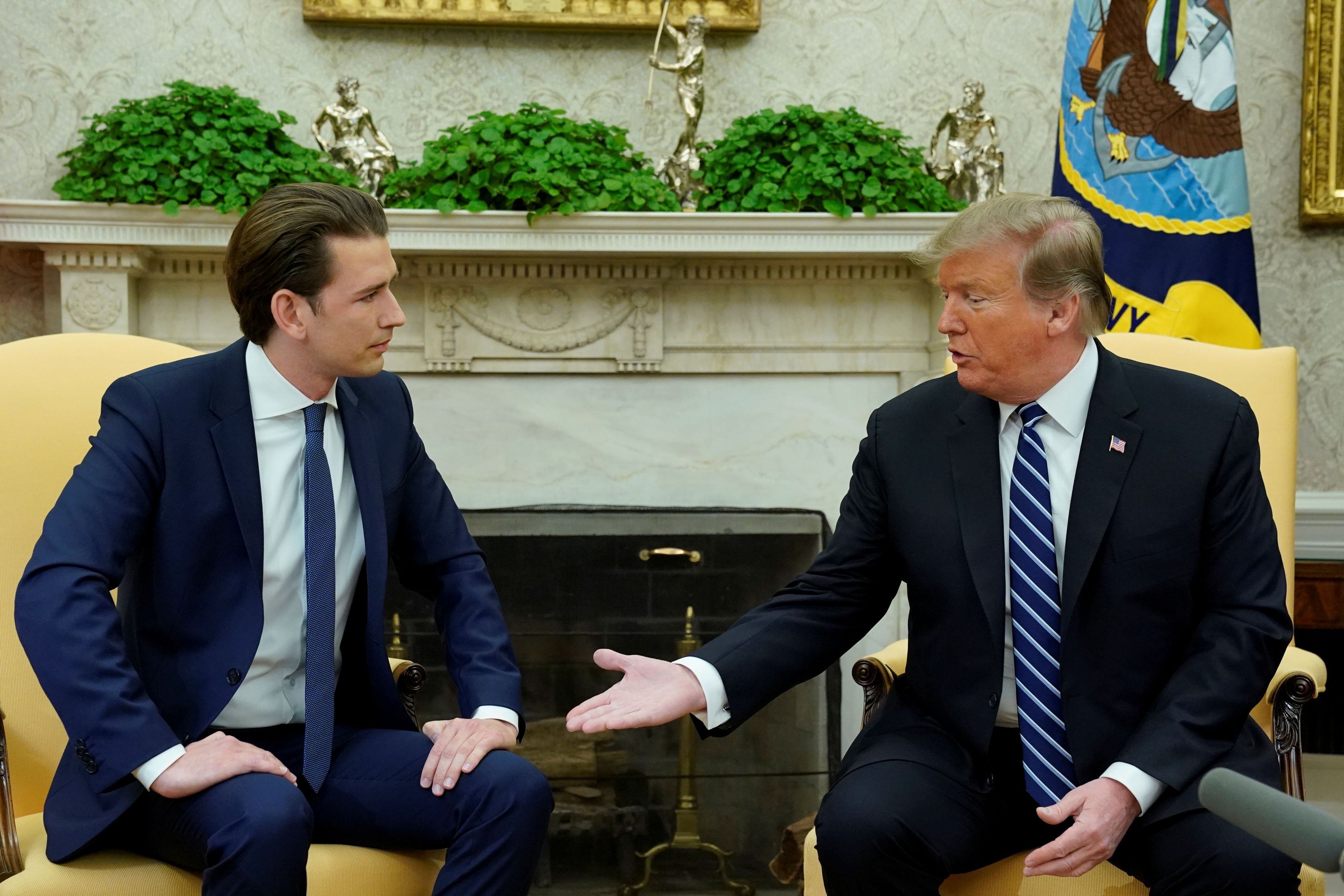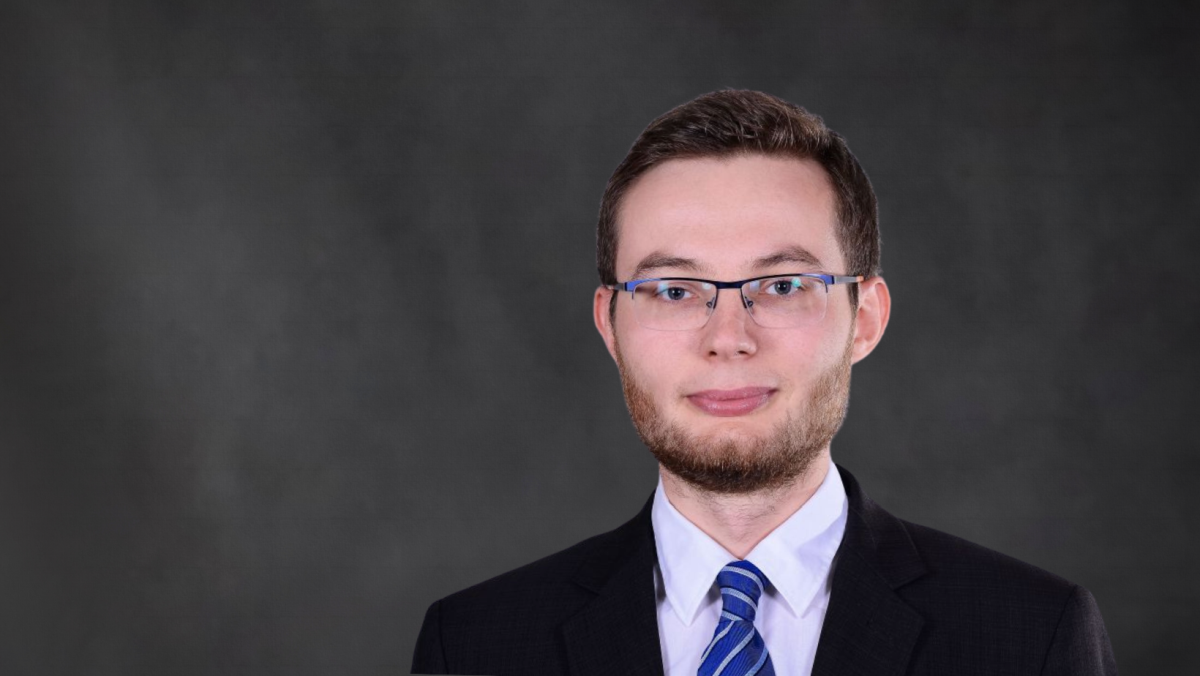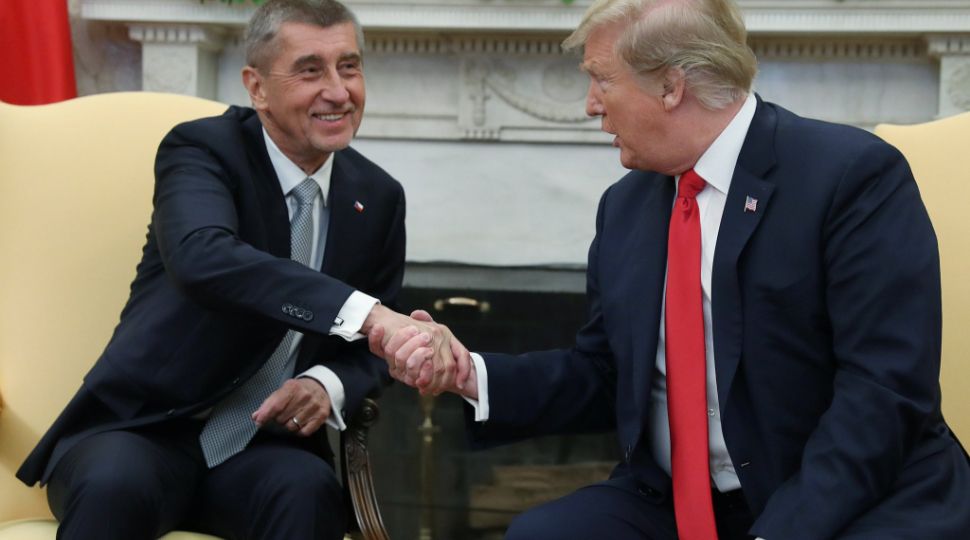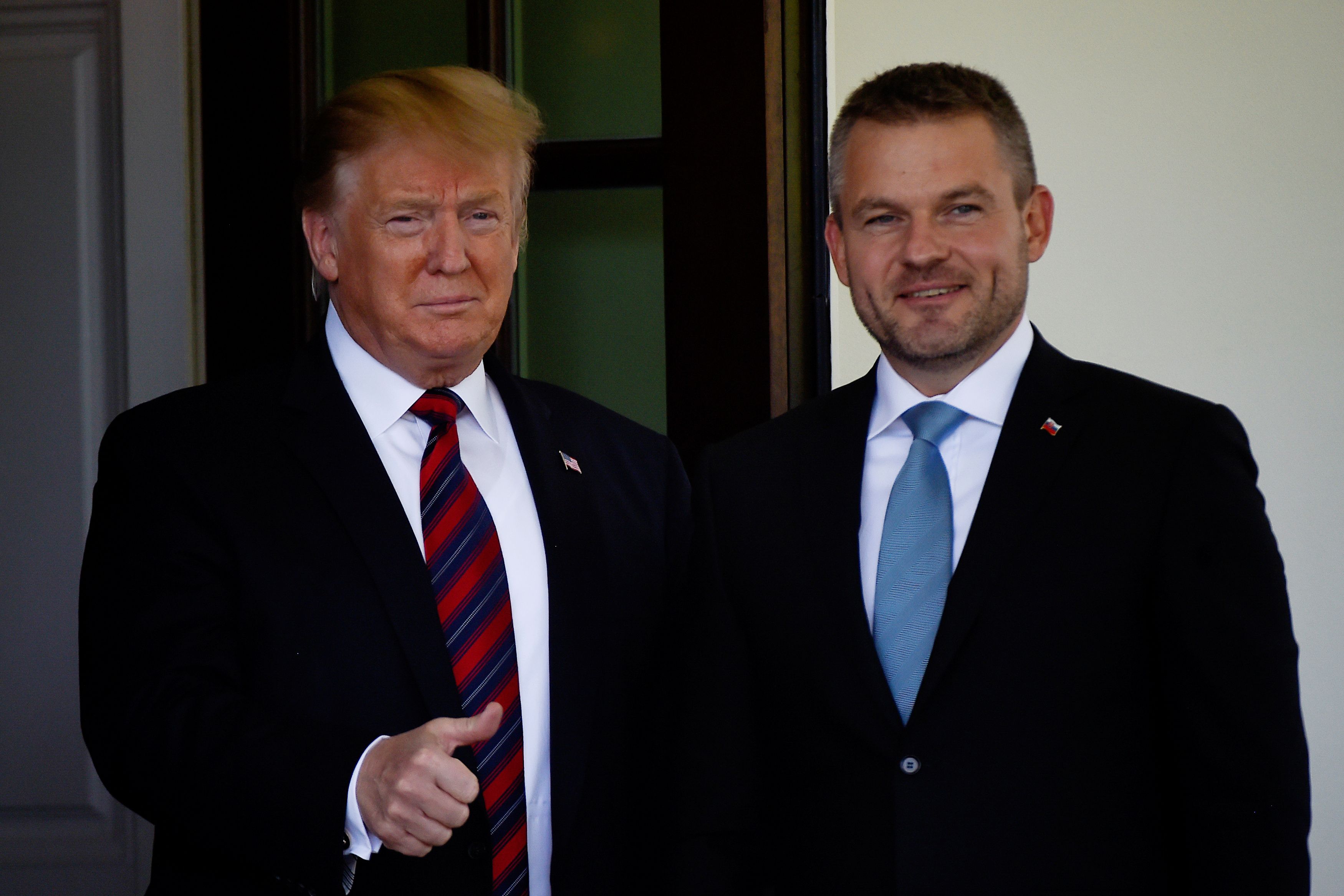Austria’s Relations with the United States

The exit of the Freedom Party of Austria (FPÖ) from the government last year had a positive impact on relations between Austria and the United States. Although the new coalition partner of Kurz’s Austrian People’s Party (ÖVP), the Greens, was critical of, for example, the withdrawal of the U.S. from the global climate agreement concluded in Paris in 2015, it does not seek to strengthen relations with Russia following the FPÖ pattern. What’s more, Kurz’s cabinet wants closer transatlantic cooperation, as confirmed in the programme of the government, which was sworn in in January this year, with the goal to “develop a strategic partnership with the United States".
The good condition of bilateral relations is confirmed by the announcement of Kurz’s second visit to Washington. However, due to the COVID-19 pandemic, this trip has been postponed. The previous meeting of the Austrian Chancellor in the White House took place in February 2019, and was the first such visit in 13 years. It indicated, among other things, the interest of the U.S. administration in Central Europe, as it was part of a series of meetings of Trump in the first half of 2019 with the heads of government of the Czech Republic, Hungary and Slovakia.
U.S. Interest in Austria
Trump authenticates his administration’s decisions in the eyes of the electorate by pointing to similarities with the policies of other countries, including Austria. Kurz is seen in the U.S. as an enthusiast of restrictive migration policy. He owes this image to his attitude during the migration crisis, when he demanded the closure of the Balkan route in 2015, and to his positioning of the topic of migration at the centre of Austria’s EU Council Presidency in the second half of 2018. Neither the U.S. nor Austria joined the legally non-binding Global Compact for Migration. Migration policy was also the subject of Trump’s 2019 conversation with -Kurz in the White House, and the Chancellor’s visit followed Trump’s announcement of the introduction of a national emergency at the Mexican border.
Austria increases its attractiveness in the U.S through the attitude towards the conflict between Israel and Palestine, to which Trump pays special attention. Kurz endorsed Trump’s Israeli-Palestinian Peace Plan, presented in January. Also, Austria was among six EU countries that prevented the adoption of a statement critical of this plan, sought by the EU High Representative for Foreign Affairs and Security Policy Josep Borrell. Thanks to participation in the conference of the American Israel Public Affairs Committee (AIPAC) in Washington in March, Austria authenticated its pro-Israeli approach in the eyes of the American administration. A similar function was played, albeit indirectly, by a resolution in the Austrian parliament regarding countering anti-Semitism, adopted in February this year. A new American initiative binding the United States, Israel, Austria, and 24 other countries, including Poland, is the International Religious Freedom Alliance, which aims to protect the rights of religious minorities. Austria’s Minister of Foreign Affairs Alexander Schallenberg and Secretary of State Mike Pompeo (as host) participated at the February inauguration in Washington.
Austria also supports some U.S. international initiatives in other regions. Kurz’s endorsement of Pompeo’s plan for democratic transition in Venezuela at the end of March was a recent manifestation of this approach. Austria was one of the first EU countries to recognise Juan Guaido as the interim president of this country, which the U.S. did before.
Austrian Expectations of the U.S.
Kurz sees a threat to Austrian producers in protectionist practices of the United States. Austria, as an export-oriented country, wants to avoid escalating trade disputes between the EU and the United States. The U.S. is Austria’s second-largest export market after Germany, accounting for 6.7% of Austria’s total exports. In 2019, the value of Austrian exports to the U.S. amounted to €10.2 billion, exceeding the threshold of €10 billion for the second year in a row. The U.S. is Austria’s second-most important source of imports outside Europe, after China. Last year, U.S. exports to Austria amounted to €7.1 billion (4.5% of the latter’s total imports). The trade balance therefore favours Austria, a situation which is perceived by the U.S. administration as negative. Also, Austria—driven by economic interest and referring to the state’s neutrality—defies U.S. demands that the Austrian government exclude Chinese tech giant Huawei from involvement in the development of the European 5G network.
The U.S. and Austria are also divided in their approach to NS2. Austria sees it as an investment that increases Europe’s energy security. That is why the American threat of sanctions against the enterprises involved in this project, including Austria’s OMV, drew criticism from the Austrian authorities. However, Austria’s approval for NS2 does not exclude diversifying gas sources. Although Kurz’s government is not interested in buying American LNG, considering its price to be uncompetitive compared to Russian gas, it supports the creation of the BRUA gas pipeline (running through Bulgaria, Romania, Hungary and Austria). Connecting Austria with deposits in the Black Sea strengthens the regional importance of the gas hub in Baumgarten. At the same time, Austria recognises the Three Seas Initiative (TSI), in which the U.S. is an observer, as a tool to facilitate the construction of this gas pipeline. This was confirmed by President Alexander Van der Bellen at the TSI Bucharest Summit in September 2018. BRUA, in addition to having EU support, is supported by the United States, which sees in it the possibility of transporting American LNG from gas terminals in Greece to Central Europe. The transfer of $1 billion to the countries of the TSI for energy investments, announced by Pompeo in Munich in February, was to encourage those countries to increase their independence from Russia by developing cross-border gas infrastructure.
To increase its attractiveness in the U.S. as a reliable partner on the global stage, Austria also supports other peace processes. This was shown by expressing readiness to host talks between Iran and the United States, shortly after new Austria’s government was sworn in. Although the U.S. withdrew from the Iran nuclear deal, which was reached in Vienna in 2015, Kurz’s government still hopes that it can contribute to de-escalation between the signatories of the agreement. It is in Austria’s favour that it maintains intensive diplomatic contacts with the U.S. and Iran, confirmed, for example through Schallenberg’s visits in February to Washington and Tehran.
Conclusions and Prospects
The specificity of relations between Austria and the U.S. differentiates them from those between Visegrad countries and the United States. Unlike V4, Austria does not cooperate closely with the U.S. in the field of security within NATO. As a neutral state, it considers itself to be a useful partner in supporting the U.S. in international peace processes. This happens, among other things, via the pro-Israel policy of the Kurz government and its involvement in the de-escalation of tensions with Iran.
With gestures of support for American initiatives and a similar perception of issues such as migration, Austria improved relations with the United States. This does not, however, indicate Austria’s readiness to make concessions to the U.S. regarding ending its involvement in the NS2 project or the exclusion of Huawei from the 5G network. These differences are likely to be marginalised in the face of a downturn in trade between Austria and the U.S. due to the COVID-19 pandemic.
Due to the improvement of relations between the U.S. and Austria, and to increasing American support for the TSI, this platform may play a greater role in building Austria’s relations with Central European countries. From Poland’s perspective, it would be beneficial to involve this country’s efforts in diversifying sources of gas supplies to the region, which in this case means working on the construction of the BRUA gas pipeline. Also, Poland, as the host of the next meeting of the International Religious Freedom Alliance, may use this forum to strengthen its cooperation with the U.S. and Austria to protect the rights of religious minorities, which is also one of the priorities of Poland’s membership of the UN Human Rights Council in the 2020 to 2022 term.





